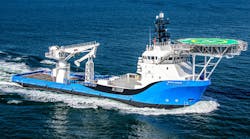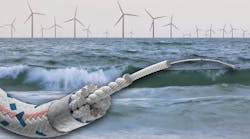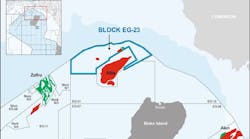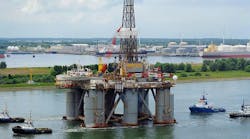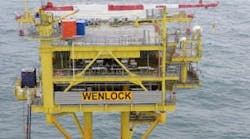The oil and gas industry supports millions of jobs and delivers billions of dollars in annual revenue to governments. Last year, it contributed more than $470 billion to the US economy in spending, wages and dividends, creating jobs through the recession and the national economic downturn.
Safety, with continuous improvement through research, standards, training, and information and knowledge transfer, is a core value of the oil and gas industry. In 2013, in the US, oil and gas industry job-related nonlethal injuries and illnesses were 2.1 per 100 full-time workers, compared to 3.4 overall, according to the American Petroleum Institute. Safety data, information, and best practices are shared with all interested offshore industries.
Another critical area for ocean industry collaboration and continuous improvement is the marine environment. An important new way in which this takes place is via the World Ocean Council (WOC) - an international, cross sectorial business leadership alliance. WOC member companies discuss and share key insights from their own work or their sector. Relationship building and dialogue strengthen cross-sector efforts on the marine environment.
To ensure continued access to marine space and resources, companies are focused on understanding their ocean footprint and implementation of policies and practices expected of responsible operators. However, the ocean is an inter-connected global marine ecosystem. Thus, although many good people in good companies are working to address the impacts of their offshore activities, the best efforts by a single company or an entire industry will not be enough to address shared issues and their cumulative effects.
Leadership companies have procedures in place to ensure that they operate responsibly. The sharing of environmental stewardship information and knowledge takes place through a range of pathways, such as peer-reviewed publications, international conferences, trade organizations, and operational partnerships.
The WOC was established to foster this rich knowledge exchange. The WOC is working to foster proactive, collaborative leadership by ocean industries to tackle these, and other, ocean challenges at the multi-industry scope and global scale in which they are occurring.
The good news is that business benefits can result from working together to define problems, assess risks, support science, develop solutions, and test technology. Synergies and economies of scale can create direct cost savings. Responsible, leadership companies can gain from collaboration with like-minded peers in the ocean business community. Developing solutions to shared marine environmental issues can generate long-term benefits by reducing risk, minimizing permit delays, avoiding public campaigns, and decreasing legal challenges.
One example of a marine environmental challenge is anthropogenic sound and marine life. In seismic mapping, acoustic arrays towed behind ships send short, high-pressure pulses to the seafloor about every 10 seconds. Hydrophones capture the sound waves that bounce back, providing large volumes of data for 3D images of what lies beneath the seafloor.
To what extent do these sound sources impact marine mammals? The main independent, academic research area for this issue is the Sound and Marine Life Joint Industry Program (JIP) governed through the International Association of Oil and Gas Producers (IOGP) and the International Association of Geophysical Contractors (IAGC). The offshore industry conducts environmental studies and risk assessments prior to operations. Mitigation measures are carefully designed and implemented to address site-specific environmental conditions to ensure that sound exposures and vessel traffic do not harm marine mammals or other endangered species. Under the watchful eye of regulators, this technology has been used safely and successfully for about a half century and is critical to the expansion of offshore energy production worldwide.
Anthropogenic marine sound also results from shipping, port development, dredging, wind farms, fishing, and geophysical research by universities and government agencies. The results from the Sound and Marine Life JIP are published in peer-reviewed, international science journals. The WOC works to help ensure that other maritime sectors are aware of oil and gas industry efforts and to create multi-industry efforts to tackle cross-sectoral aspects of marine sound - to the benefit of all industries involved and the shared marine environment in which they operate.
The WOC is the only international, cross-sectoral business leadership alliance on ocean sustainable development. The leadership companies within the WOC are working together to be responsible stewards of the areas in which they operate. WOC members include sustainability leaders from shipping, oil and gas, fishing, aquaculture, mining, offshore renewables, technology, maritime legal, investment and other ocean industries.
As more companies distinguish themselves by joining this international ocean industry leadership alliance, WOC programs are being developed to tackle shared sustainability challenges, e.g. ocean policy, industry data collection, the Arctic, marine spatial planning, invasive species, marine debris, marine sound, etc.
The WOC network includes more than 34,000 ocean industry and media stakeholders around the world. The WOC Sustainable Ocean Summit (SOS) is recognized as the international ocean business community conference on corporate ocean responsibility, with the third SOS scheduled for Nov. 9-11, 2015, in Singapore.
Paul Holthus
CEO
World Ocean Council
